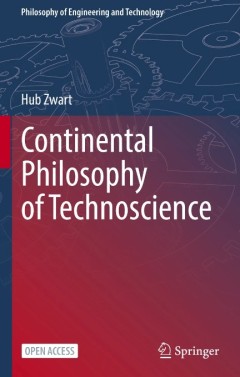Filter by

Artificial Intelligence for a Better Future : An Ecosystem Perspective on the…
This open access book proposes a novel approach to Artificial Intelligence (AI) ethics. AI offers many advantages: better and faster medical diagnoses, improved business processes and efficiency, and the automation of boring work. But undesirable and ethically problematic consequences are possible too: biases and discrimination, breaches of privacy and security, and societal distortions such as…
- Edition
- -
- ISBN/ISSN
- 9783030699789
- Collation
- 124 p
- Series Title
- SpringerBriefs in Research and Innovation Governance,
- Call Number
- 174.90063 STA

Continental Philosophy of Technoscience
The key objective of this volume is to allow philosophy students and early-stage researchers to become practicing philosophers in technoscientific settings. Zwart focuses on the methodological issue of how to practice continental philosophy of technoscience today. This text draws upon continental authors such as Hegel, Engels, Heidegger, Bachelard and Lacan (and their fields of dialectics, p…
- Edition
- -
- ISBN/ISSN
- 9783030845704
- Collation
- vii, 245 p.
- Series Title
- -
- Call Number
- 501 CON H
 Computer Science, Information & General Works
Computer Science, Information & General Works  Philosophy & Psychology
Philosophy & Psychology  Religion
Religion  Social Sciences
Social Sciences  Language
Language  Pure Science
Pure Science  Applied Sciences
Applied Sciences  Art & Recreation
Art & Recreation  Literature
Literature  History & Geography
History & Geography